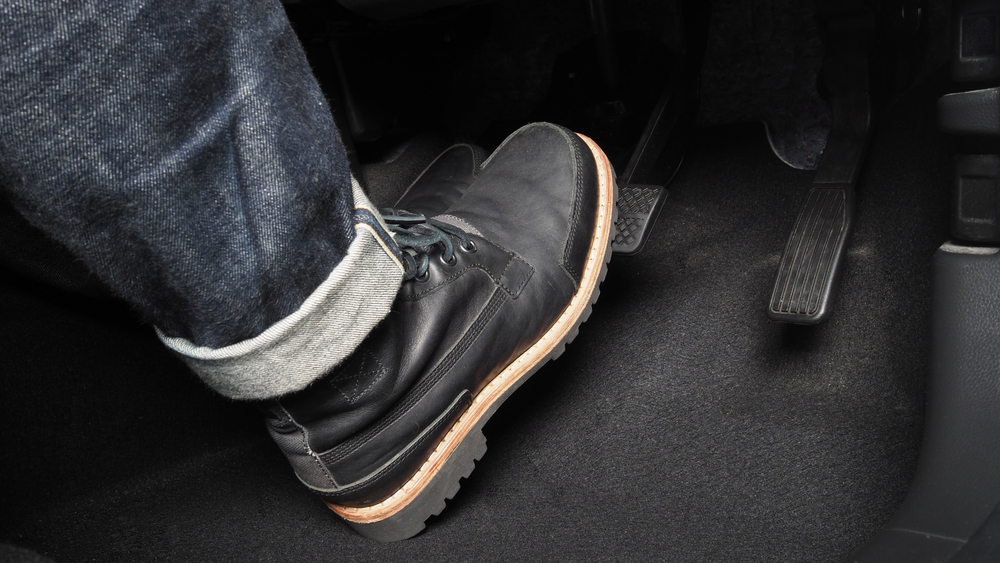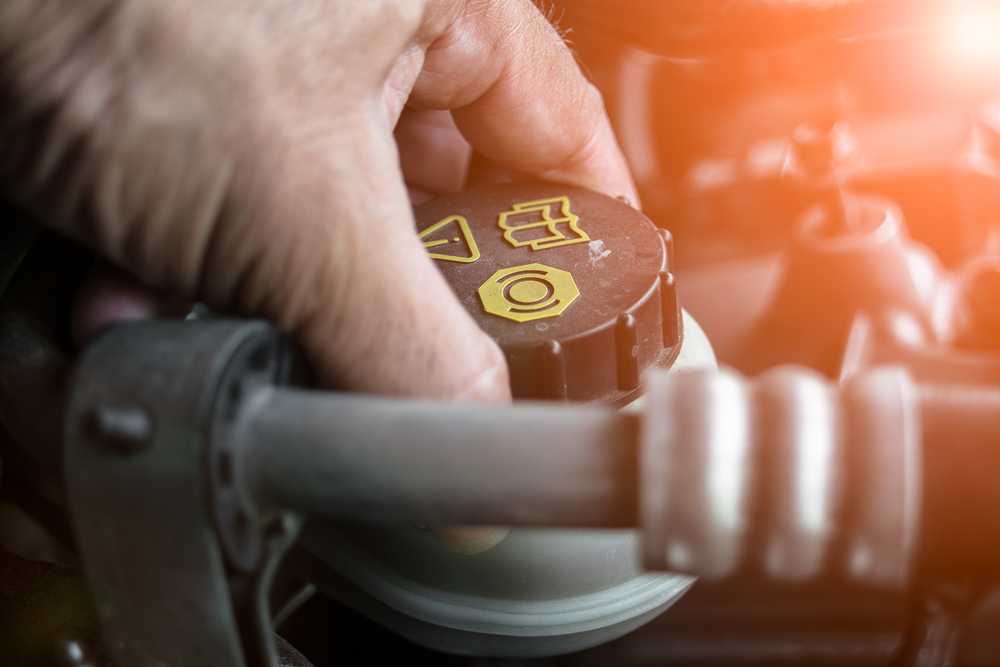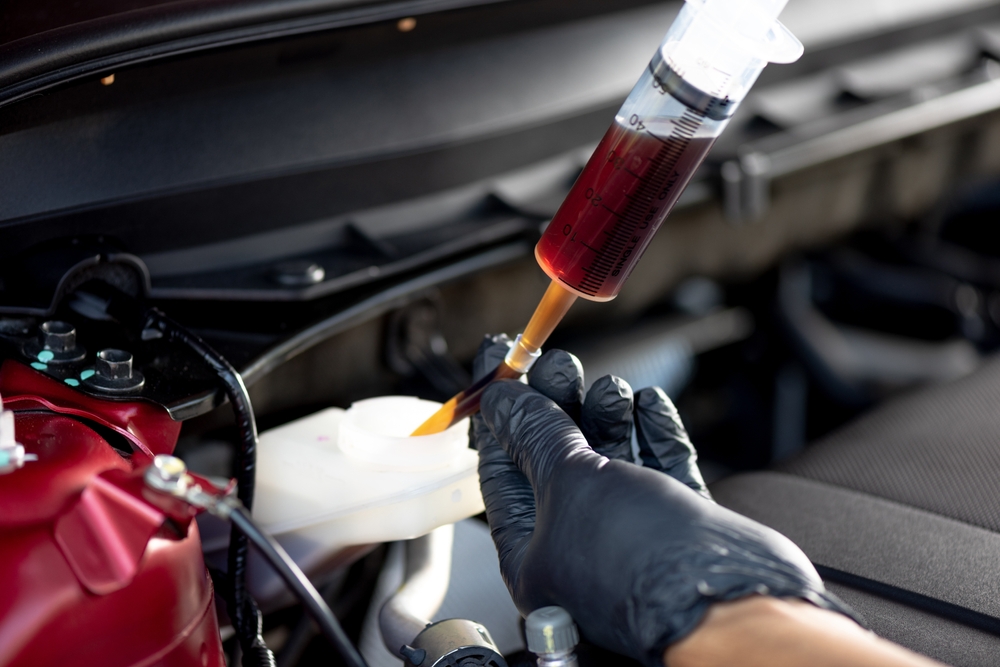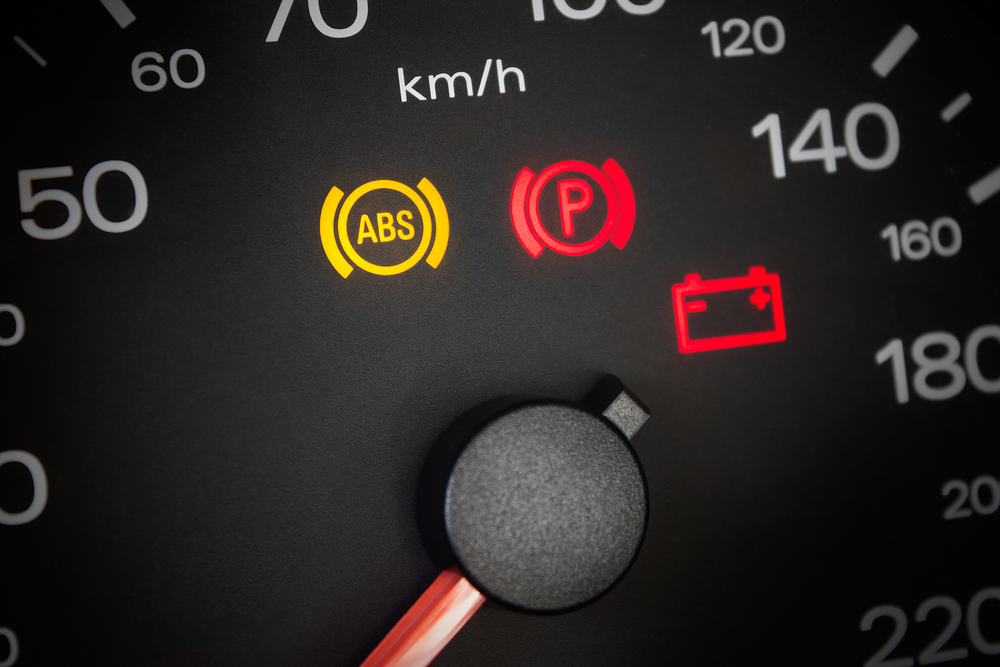
Drive Safely 101: Understanding The Importance Of Brake Fluid
Brake fluid is a key element in your vehicle brake system. Oftentimes, it gets overlooked in favor of other components of the car, such as the oil or the tires. And, of course, keeping those features well-maintained is essential to ensuring your vehicle runs. Brake fluid, however, deserves as much attention as any other piece of your car, and in this blog, we tell you why.
We’ll discuss everything about the importance of brake fluid, starting from the basics –what it is and what it does–, then why changing it regularly matters for your safety as well as the consequences of neglecting brake fluid care, and finally the signs you should look out for when it needs a tune-up.
Let’s begin.

What Is Brake Fluid?
We know why brakes are important: they safely help us slow down or stop before causing an accident. They are, essentially, a security system to protect our lives. Brake fluid, a specialized hydraulic fluid, is part of that mechanism, and plays a crucial role in it, too.
Contained on the brake lines, it operates when we hit the brake pedal, turning that force into pressure on the brake pads, which apply it on the wheels to slow down or stop the car’s movement. It requires, however, a certain quality for brake fluid to actually work on your vehicle.
First, it must have a high boiling point. Since friction creates lots of heat, this could cause it to vaporize, and lose its’ effect on the car. Second, it has just the right viscosity for it to flow easily and still draw moisture from the air. That’s why most brake fluids are silicone or glycol-based, and shouldn’t be mixed under any circumstance. And finally, this liquid is formulated with components that make it anti-corrosion on the rest of the hydraulic braking system.
Types of brake fluid in the industry
Those are the three main characteristics you should look out for when choosing the right brake fluid for your vehicle. Nevertheless, always keep in mind most manufacturers will recommend in the manual one of the 4 types of brake fluid available in the market:
- DOT 3: Glycone-based, this brake fluid works best in older vehicles, as it has a low boiling point.
- DOT 4: Glycone-based as well, this type has a higher boiling point than DOT 3, and is more effective on cars with anti-lock braking system (ABS).
- DOT 5: Silicone-based, DOT 5 is not compatible with ABS technology. But, it has a high boiling point and doesn’t absorb moisture, making it ideal for vehicles under harsh conditions or lots of performance demands.
- DOT 5.1: Glycone-based, this type of brake fluid has a high boiling point and is also compatible with cars with anti-lock braking systems.
What Does Brake Fluid Do?
Okay, but is that how brake fluid works? A more detailed explanation here: Brake fluid is the lifeblood of your braking system. It enables the smooth and controlled operation of the mechanism with every press on the brake pedal.
So, whenever your foot hits the pedal, the force activates the pressured fluid to flow into the brake lines. The more force, the more pressure, and the more friction applied on the brakes to stop. Then, the liquid moves through the brake lines, until it arrives at the drum brakes (also named caliper or wheel cylinder).
From there, the brake fluid acts as a force to push the brake pads against a spinning rotor, and the friction that causes smoothly halts the wheels to a stop. In essence, this liquid is the link between your foot and the brake system, translating your commands into controlled stopping action. Therefore, if you’re running on bad or low brake fluid levels, your rear brakes either: won’t be as effective or simply won’t work at all. And that’s why it’s essential to regularly check it and, if needed, replace it.

Why You Should Change Brake Fluid Routinely
Regular brake fluid maintenance is crucial due to how it readily absorbs moisture from the environment over time. As moisture accumulates, the boiling point of the liquid lowers, and this can compromise the ability to transmit pressure effectively. Which then, leads to the brakes becoming less responsive under prolonged or heavy braking.
Brake fluid can also get contaminated with dust, dirt, and other debris. The contamination accelerates the corrosion within the brake system and eventually damages key elements, like the master cylinder, brake lines, and calipers. This can, in turn, affect the performance of your vehicle, and if not fixed in time, lead to expensive repairs.
Therefore, replacing the old brake fluid with a brand-new one for certain intervals is always a must. Your car’s manufacturer will recommend the ideal times to change the liquid, and we advise you to visit a professional team, such as Amarz Muffler & Auto Service, to perform this step. Remember, investing in routine checks equals investing in your peace of mind and safety on the road.
What If You Don’t Change Brake Fluid On Time?
Now, what happens if you drive with low brake fluid or if you don’t replace it on time? Well, the short answer is, two main consequences: soft brake pedal and complete brake system failure.
As we mentioned before, moisture-contaminated brake fluid is prone to boiling. This means that when you’re driving downhill or towing heavy loads, and press your foot on the pedal, the liquid will form bubbles that compress under pressure, and you will sense the brake pedal is “spongy”. This reduces the effectiveness of the mechanism. In extreme cases, though, the entire system can fail, and you might lose control over the vehicle and potentially cause an accident.
It’s always better to attend your brake fluid needs, and contact technicians who can promptly address those issues, so you can safely continue soaring through the streets free of worries.

Signs You Should Look Out For
Now that we’ve covered everything about the importance of brake fluid, let’s discuss how you can protect yourself by detecting the following issues before hitting the road:
- Soft pedal: If your brake pedal feels squishy, spongy, or soft, and requires more force for it to effectively halt the car to a stop, you’re dealing with low brake fluid.
- Oil pooling under the car: If you find an oily substance near the calipers, the master cylinder, or the rubber hoses, your brake fluid might be leaking.
- Anti-block system light on dashboard: ABS technology needs brake fluid to work properly. If you see the ABS light flickering on and off, the levels of liquid might be down. If the light is permanent, however, run a maintenance check on it in case it’s an even more serious problem.
- Old brake pads: If you haven’t replaced your brake pads and they’re showing signs of wear and tear, like a whining noise, then you will need to change them and, while at it, replace the brake fluid.
Amarz Muffler & Auto Service: Your Reliable Brake Fluid Replacement Company
Protect yourself, your loved ones, and other drivers by proactively replacing your brake fluid! Amarz Muffler & Auto Service is your reliable local brake fluid inspector and replacement company. Located in 5890 Dixie Road #2, Mississauga, we offer affordable and safe solutions so you can hit the road as soon as possible!
Call us at (905) 564–0090 to schedule an appointment today!
